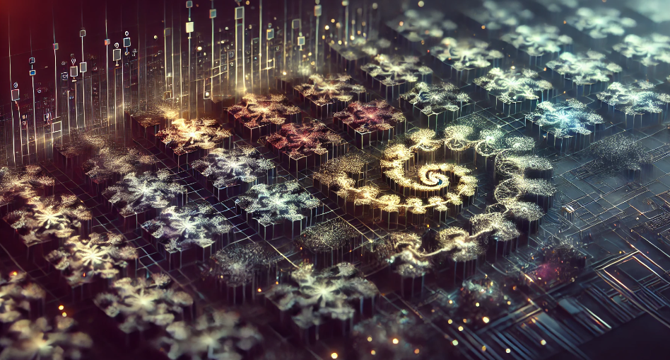Medium
1M
205

Image Credit: Medium
Can Training On Cellular Automata Push Passed The AI Data Bottleneck?
- 1D cellular automata are simple computational systems that generate patterns through rules governing how cells evolve over time.
- The richness of CA stems from their parameter space. This vast “CA space” provides what seems like an infinite dataset filled with surprising behaviors and complex patterns for AI to explore and learn from.
- Training on CA offers a unique opportunity to build an AI that excels at a deeply creative and challenging task: programming.
- The CA could be trained to build universal computers in a computationally universal CA.
- The AI could be rewarded for designing not only universal computers but also simpler, task-specific machines that are computationally less powerful but more efficient for particular programs.
- The training incentivizes leaner, more elegant designs, promoting highly creative and effective problem-solving, encouraging the AI to discover non-obvious solutions.
- Beyond the rule number, other parameters can be manipulated to push a CA program into new realms of complexity and exploration, expanding the space of possibilities.
- More complex CA systems could teach AI how to build technology in increasingly intricate environments, providing a pathway to greater adaptability and creativity.
- Using cellular automata as a training ground for AI might be a key step toward creating systems that can program with the adaptability and insight of a human.
- While the computational complexity of exploring CA space could eventually become limiting, there is a vast horizon of potential to explore before reaching that point.
Read Full Article
12 Likes
For uninterrupted reading, download the app